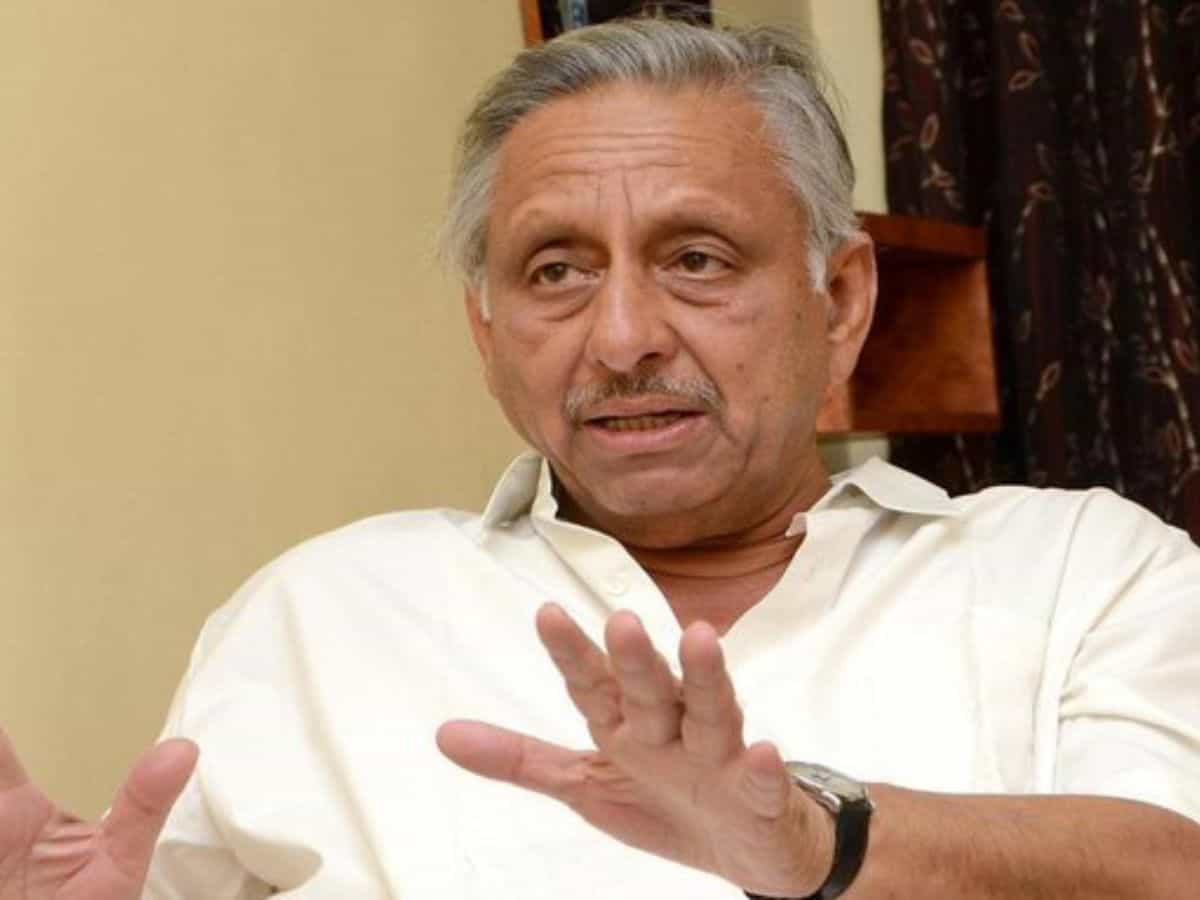
New Delhi: Congress leader Mani Shankar Aiyar on Tuesday claimed that Rajiv Gandhi’s government had used its imposing mandate to unite the country but the current BJP dispensation with its “brute majority” was “attempting to enforce uniformity on diversity”.
In an interview with PTI on his new book “The Rajiv I Knew”, Aiyar described Rajiv Gandhi as the most misunderstood prime minister of India who was a “very honest man” but lacked political guile, machinations, and qualities one sees in a typical “Hindi film politician”.
The bureaucrat-turned-politician also asserted that Gandhi’s intention was never to inflame inter-communal relations and the criticism directed at the former prime minister over the Shah Bano case was “unjustified”.
On the Ramjanmabhoomi issue, Aiyar said it was former minister of state Arun Nehru who was responsible for the opening of the locks of the Babri masjid.
Aiyar argued that nobody could have foreseen that when the locks were opened in January-February of 1986 “we are going to see the Ram temple being inaugurated by the head priest of India who is also the PM on January 22, 2024”.
It would have required an astrologer to do that, he said.
“The Rajiv I Knew And Why He Was India’s Most Misunderstood Prime Minister”, published by Juggernaut, talks about Gandhi’s premiership (October 31, 1984-December 2, 1989) as seen by Aiyar while working closely with the late Congress prime minister in the Prime Minister’s Office. The book was launched last month.
In the free-wheeling chat about his book, the former Union minister said though both the Gandhi-led dispensation and the current BJP government had a clear majority, they are “polar opposites”.
He gave the examples of Punjab, Assam, and Mizoram to underscore that Gandhi found solutions “to every fire in the country”.
“Apart from all the positive steps that he took and his great initiatives on the domestic and foreign policy front, the problems that existed were resolved. Certainly the Shah Bano case was wrongly portrayed as a form of communalism,” Aiyar said.
The current government with a brute majority is attempting to enforce uniformity in a diverse country, he alleged.
“So the two governments are the polar opposites of each other. There is an attempt today being made to enforce uniformity on diversity whereas in Rajiv Gandhi’s time, as in the time of his predecessors, and as was also the case with his successors till 2014, the fundamental principle of polity in India has been to ensure unity while respecting diversity,” Aiyar said.
On Shah Bano case
Talking about the Shah Bano case of 1985 in which the Supreme Court delivered a judgment favouring maintenance given to a divorced Muslim woman, Aiyar said the Supreme Court in its judgment of September 2001 has vindicated and validated the Muslim Women (Protection of Rights on Divorce) Act, 1986, that was brought in by the Rajiv Gandhi government.
The very longevity of the act despite the changes in government at the Centre over the years indicates that Gandhi took the right decision in the matter, he said.
The responsibility of ensuring justice to a divorced woman was taken away from the Qazi and given to the magistrate who in turn could force the waqf board to look after the divorced Muslim women, he said.
Aiyar said that effectively Gandhi ensured that the compensation under Muslim personal law was to be increased to a minimum of Rs 500 per month from the Rs 179 per month that was given in the Shah Bano case.
He said that the law passed talked about compensation to the divorced woman for life ‘within the period’ of ‘Iddat (no marital relations for three months)’ and not ‘for’ that period.
So, the kind of criticism that was made in 1986 was clearly unjustified and it is a pity that the left liberals who slammed it are now not ready to say “mea culpa”, that “we are wrong”, Aiyar said.
He also blamed Arun Nehru for the opening of the locks of the Babri masjid.
“What was done (opening of locks) was done by a local man, for local purposes which may have been communalist,” Aiyar said.
Arun Nehru was responsible and was punished by being excluded from the council of ministers and from any party position by Rajiv Gandhi but unnecessarily it is said that the locks of the mosque were opened at the behest of the former prime minister, he said.
Asked about the Bofors controversy and the allegations against Gandhi, Aiyar asserted that the high court and the Supreme Court had certified Rajiv Gandhi’s innocence.
On Gandhi’s Panchayati Raj reform, Aiyar said the objectives of the Panchaayti Raj constitutional amendment have only been very partially realized.
“But I comfort myself with the thought that I asked Rajiv while he was still alive and we were still hoping that these amendments would be passed as to how long he thought it would take (for its implementation) and his reply intrigued me at the time. He said ‘at least a generation,” he said.
It means that he himself envisaged a period of at least 25 years when the implementation would take place, Aiyar said, adding that “we need to perhaps wait for another generation for full implementation”.
He said the constitutional amendment made by Gandhi ensured that the Panchayati Raj is “ineluctable, irremovable and irreplaceable”.
On the Panchayati Raj’s performance, Aiyar said the Constitution has given the responsibility for Pachayati Raj to the states and therefore states in the South and hill states have made phenomenal progress, but in many parts of the Gangetic plain the implementation is poor.
